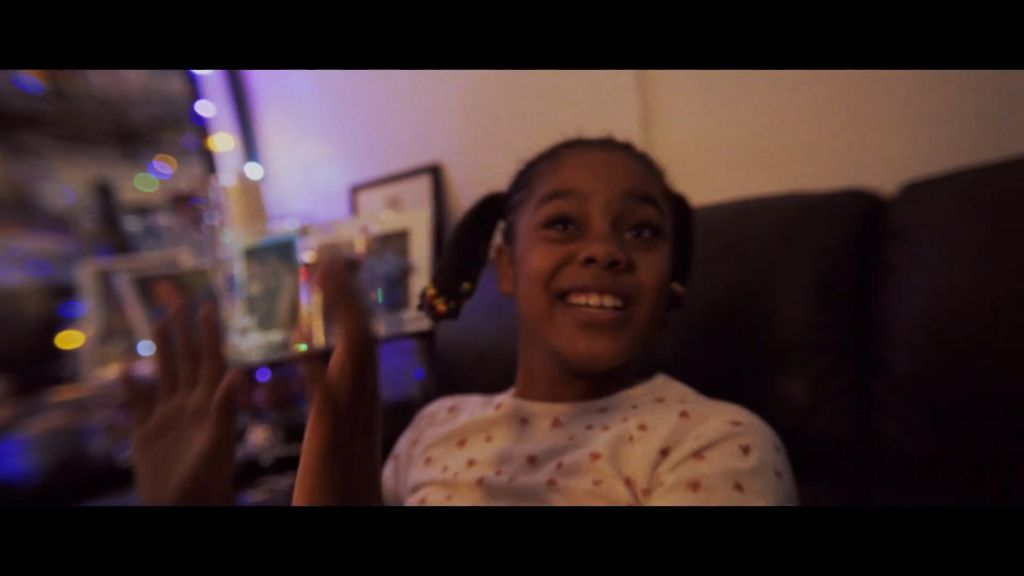Relatability is the key to winning big in awards season
Singer-songwriter Raye won big at this year's BRIT Awards with songs about heartbreak, discrimination and distorted self-image. Not exactly upbeat topics, but definitely relatable ones. Dave Billing, ECD & Partner at Fold7 London, explains why relatability is where future successes could lay for advertising.
Singer-songwriter Raye recently made history at the BRIT Awards, taking home a record-breaking six trophies, and becoming the first ever woman to win songwriter of the year.
Described by one critic as “autobiographical to its core”, her album, My 21st Century Blues, touches on relatable topics such as heartbreak, discrimination and distorted self-image.
We’re starting to see a move away from artifice.
We can all learn something from Raye’s success because, in the end, relatability and stories that resonate across all human experience, wherever we live in the world, wins. It might be an optimistic view, but I believe we’re starting to see a move away from artifice and a desire to present a polished image to the world, and shifting towards embracing this thing we call life - our shared experience of happiness, loss, loneliness, discrimination and heartbreak.
Credits
powered by
- Agency Saatchi & Saatchi/London
- Production Company Art Practice
- Director Daniel Wolfe
-
-
Unlock full credits and more with a Source + shots membership.
Credits
powered by
- Agency Saatchi & Saatchi/London
- Production Company Art Practice
- Director Daniel Wolfe
- Editorial MARSHEEN
- Post Production The Mill/London
- Sound Factory Studios/London
- Music Emeralds Music
- Executive Creative Director William John
- Senior Copywriter Sam Simmonds
- Senior Art Director George Coyle
- DP Diego Garcia
- Executive Producer James Guy
- Chief Strategy Officer Richard Huntington
- Chief Production Officer (HP) Jessica Ringshall
- Producer Shirley O'Connor
- Producer Jon Adams / (Producer)
- Producer Dan Heighes
- Producer Alex Pemberton
- Production Designer Arthur De Borman
- Executive Producer Richard Firminger
- Producer Harriette MacNaughton
- Editor Dave Davis
- Producer Rosie Nolan
- Colorist Simon Bourne
- Color Producer Chris Anthony / (Color Producer)
- Sound Producer Beth Massey

Credits
powered by
- Agency Saatchi & Saatchi/London
- Production Company Art Practice
- Director Daniel Wolfe
- Editorial MARSHEEN
- Post Production The Mill/London
- Sound Factory Studios/London
- Music Emeralds Music
- Executive Creative Director William John
- Senior Copywriter Sam Simmonds
- Senior Art Director George Coyle
- DP Diego Garcia
- Executive Producer James Guy
- Chief Strategy Officer Richard Huntington
- Chief Production Officer (HP) Jessica Ringshall
- Producer Shirley O'Connor
- Producer Jon Adams / (Producer)
- Producer Dan Heighes
- Producer Alex Pemberton
- Production Designer Arthur De Borman
- Executive Producer Richard Firminger
- Producer Harriette MacNaughton
- Editor Dave Davis
- Producer Rosie Nolan
- Colorist Simon Bourne
- Color Producer Chris Anthony / (Color Producer)
- Sound Producer Beth Massey
Above: EE's campaign featured "honest, bang-on-the money vignettes of British life".
Similar themes were tackled in last year’s incredibly popular film Barbie. It may not have won as many trophies as expected at the Oscars, but Ryan Gosling’s performance of the hit song I’m Just Ken still stole the show and became one of the major talking points after the ceremony. It may have picked up only one Oscar, but Barbie succeeded in winning the hearts of the people.
It’s clear that relatability is a driving force for success, and the same can be said in advertising. It’s a theme that seems to permeate some standout campaigns of recent times. Take EE’s tour de force relaunch with its honest, bang-on-the money vignettes of British life; or B&Q’s frank take on DIY fear of failure with You Can Do It. These are just a couple of examples, and we’re only going to see more: a number of brands, including Ocado, have said they are looking to bring relatability to the forefront of their marketing strategies.
[Relatability is] a theme that seems to permeate some standout campaigns of recent times.
Our Laugh Through It campaign for Audible is a good example of work that resonates because it’s relatable. It builds on the insight that comedy offers light-hearted moments of escapism and emotional release in some of life’s more testing moments. The work was created following research that showed that 87% of people listen to audiobooks to change their mood.
The huge response to the campaign indicated that you don't always have to show people the sunny side of life. An attitude of unbridled positivity can feel tone deaf and inauthentic to consumers. It turns out that relating to the shared, universal experience of the FML moment was a singularly powerful thing.
Credits
powered by
- Agency Fold7/London
- Production Company MindsEye
- Director Thomas Ormonde
-
-
Unlock full credits and more with a Source + shots membership.
Credits
powered by
- Agency Fold7/London
- Production Company MindsEye
- Director Thomas Ormonde
- Executive Producer Debbie Ninnis
- Editing Shift Post
- Editor Saam Hodivala
- Post Production/VFX/Color Black Kite Studios
- Producer Polly Durrance
- VFX Supervisor Daniel Sanders
- Colorist Tom Mangham
- Sound String and Tins
- Producer Eimear Ni Ghuaire
- Sound Designer Adam Smyth
- Executive Creative Director Dave Billing
- Creative Director Rob Griffiths
- Producer Jonny Kight
- Creative Director James Hudson
- Creative Philippa Baines
- DP Kasper Wind Nielsen
- Senior Producer Emily Hendrey
- Head of Creative Services Maggie Roberts

Credits
powered by
- Agency Fold7/London
- Production Company MindsEye
- Director Thomas Ormonde
- Executive Producer Debbie Ninnis
- Editing Shift Post
- Editor Saam Hodivala
- Post Production/VFX/Color Black Kite Studios
- Producer Polly Durrance
- VFX Supervisor Daniel Sanders
- Colorist Tom Mangham
- Sound String and Tins
- Producer Eimear Ni Ghuaire
- Sound Designer Adam Smyth
- Executive Creative Director Dave Billing
- Creative Director Rob Griffiths
- Producer Jonny Kight
- Creative Director James Hudson
- Creative Philippa Baines
- DP Kasper Wind Nielsen
- Senior Producer Emily Hendrey
- Head of Creative Services Maggie Roberts
Above: The Audible campaign didn't focus on the 'sunny side of life' and was all the more relatable - and successful - for it.
It isn’t hard to understand why relatability is gaining momentum. There has been a rise in inauthenticity among brands which has resulted in a trust gap between brands and consumers. This has partly been driven by the 'scientisation' of marketing, and partly by a move away from marketers 'trusting their gut'.
Over the past year, much has been said about the importance for brands to be genuine and authentic when trying to connect with a Gen Z audience. This is particularly apparent in influencer marketing. According to research from Matter Communications, 61% of consumers say influencers with relatable personalities are the most appealing to them.
Brands need to behave more like people, because creating an authentic connection with customers is paramount.
But Gen Zs are not alone in wanting more meaningful connections. As human beings we’re all hard-wired to crave true, authentic connection. From the moment we’re born, we seek out interactions with other people that provide comfort, understanding and validation.
Interestingly, the elements that build authentic connections between people are the same for brands and consumers; our brains do not differentiate between person-to-person experiences and person-to-brand.
At Fold7 we feel that brands need to behave more like people, because creating an authentic connection with customers is paramount. Maybe aspiration - long the driving force behind advertising of all kinds - is now only as important as connection.
)













